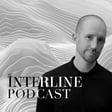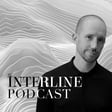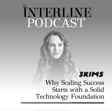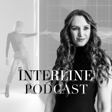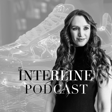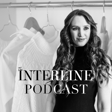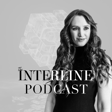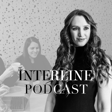Introduction to Sustainability in Fashion
00:00:02
Speaker
Every action that every company in the world takes is going to make a difference and I truly believe that the speed I'm going
00:00:23
Speaker
Welcome to the Interline Podcast. Sustainability is a big word with some big implications, but as we've seen from some recent headlines, it's also a word that gets thrown around pretty recklessly, getting applied where it really doesn't belong. The same goes for transparency. It's almost universally agreed that the near term future is going to place a requirement on brands and retailers to make
00:00:43
Speaker
radical disclosures about their supply chains, about their sourcing and procurement processes, and about the raw materials and labour that make up their products. But, as everybody knows, the gap between making a statement and actually backing it up can be pretty substantial. So, for this show, I'm talking to a brand that's tackling both of these massive words head on. Icebreaker.
00:01:03
Speaker
Renowned for creating uncompromising performance garments from natural materials, especially merino wool, Icebreaker is also known for its commitment to transparency, which is a philosophy they put on display every year in the open book transparency report that they publish.
Interview with Jordi Beniette Ferre
00:01:17
Speaker
To coincide with the publication of the 2021-2022 instalment of that report, I spent some time chatting to Icebreaker's Senior Manager of Global Materials and Sustainability, Jordi Beniette Ferre, who is based in the heartland of the brand, New Zealand. We discussed how fashions drifted away from the real definitions of sustainability and transparency, how brands, retailers and their suppliers might get back on track,
00:01:40
Speaker
why taking action in those areas is so important to begin with, and why, when it comes to the big questions, nature has the answers.
00:01:49
Speaker
Now this conversation leans heavily towards the material side of sustainability and transparency, but like I mentioned before, there's also the labour portion to consider. That's another area where there's a pressing need to replace approximation with accurate data. Now that sort of visibility is going to be fundamental to any brand or retailer's aim to make confident statements around fair and living wages, and it's already critical to costing products effectively.
00:02:14
Speaker
The sponsor of this episode, Coats Digital, creates solutions that can transform the sustainability equation at both the material and the labour levels. The GSD Framework and the GSD Cost Platform are both universally recognised scientific methods of quantifying labour operations and accurately costing garments.
Coats Digital's Role in Fashion Sustainability
00:02:31
Speaker
And Coats Digital's brand new solution, Fast React Fabric, is targeted at helping the fashion industry drastically reduce its fabric waste at the same time as enhancing bottom line profits for brands and their suppliers.
00:02:43
Speaker
Those solutions are both parts of Coats Digital's robust, multifaceted ecosystem of best-in-class technologies. Tools that empower brands and manufacturers to harness the power of meaningful data and insights, and to then use those insights to solve critical supply chain pain points quickly and seamlessly. All of which is designed to ensure that sustainable operational excellence is maintained long-term. You can find out more at CoatsDigital.com. Now, back to my conversation with Jordy from Icebreaker.
00:03:12
Speaker
I think a lot of people now don't really see a future for fashion that isn't sustainable, a future that doesn't achieve some equilibrium with the planet.
Future of Sustainable Fashion
00:03:20
Speaker
But sometimes it feels like the market doesn't really recognise that, hence the dominance of fast fashion. But today more than ever,
00:03:28
Speaker
consumers are becoming more interested in and more invested in the journeys their products have taken. I'm guessing you believe that that sort of awareness is going to translate into greater action on consumers' part over time, but I'm interested to see where you think the balance of change in sustainability and transparency is going to come from.
00:03:48
Speaker
Is it going to come from heightened consumer awareness? Is it going to come from external factors like tightened regulations that have to hold fashion to account? Or is it going to come from a combination of all those things?
00:04:02
Speaker
Yeah, good question. I do think it's the third one. It's a combination of everything. I do believe that consumers will drive the demand for more sustainable products and then it will be a bit of a natural selection from
00:04:19
Speaker
products that are clearly non-sustainable. I truly hope that eventually it will become a bit of a marginalized thing, like the consumer will decide, I'm no longer interested in this type of products because I know the impact that they have in the planet.
00:04:35
Speaker
But obviously, there is a lot of very fast change and very fast action comes when regulation comes into place. So in terms of companies turning around their practices in a fast and effective manner, regulation is needed for sure. And the more the countries start to bring in that regulation, the more accountability, the more scrutiny there is in the way
00:05:02
Speaker
We produce our products. I think the more action is going to happen and more companies will invest in this type of sustainability initiatives or it doesn't have to be even sustainable. It's like our day to day practices need to
Icebreaker's Transparency Journey
00:05:17
Speaker
change. Sustainability cannot be something we do on the site. Sustainability has to be
00:05:22
Speaker
a mindset of how we do business and we need to change all of us our mentality to become that future-proof way of producing things.
00:05:37
Speaker
you've just released your 2021-22 transparency report and there's a huge amount of detail in there. So I'm interested, what prompted you to go into that sort of depth and what do you consider to be the key findings from examining your supply chain and your ways of working to that level of detail?
00:05:58
Speaker
The transparency report is actually something that is not new for us. We started back in 2017 and I remember they posted on the wall when we were sort of brainstorming about how could this look like and one of the key posters that stood in the middle of the wall is what if our consumers could see everything we do here.
00:06:20
Speaker
so like okay that's actually the way to go about it we need to we need to do business in a manner that in one day we decide to put it all down in a report we are proud of it so that's how we we started with the report and it sort of drove
00:06:35
Speaker
as well the way we operate it all year round to make sure that, hey guys, we're going to have to report on this. So we better always make the right choice, right? So that's how we started. And then as you said, writing the report every year is like a deep look into our own business. And we go and scrutinize everything and we look at
00:07:03
Speaker
everything we've done in the past year. And sometimes it flashes out things that we are not quite happy about, and it's really good because when you know about it, you take action. And for the most part, I have to say that it's usually quite a
00:07:19
Speaker
What a seamless process. We take all our supply chain. We understand, okay, guys, you're still doing great. Let's publish all the supply list. And then we are giving that transparency to the consumer to say,
00:07:36
Speaker
have a look at the back of our report if you all the people that we're using to make the product that you eventually purchase. We feel confident about it but you know we're also happy to share it and as you said be accountable for it everything that we are sharing we are accountable for and that is fine that is a responsibility that we are happy to carry and if we are flagged for something that
00:08:02
Speaker
perhaps needs changing, that's a good thing, because then we know and we proceed to change it. It's a call for action always. Okay, perfect. That's a really good answer. And I guess my follow-on question would be, what is there that you haven't been able to find the answers for yet? I mean, where,
Icebreaker's Supply Chain Strategy
00:08:21
Speaker
if anywhere, do gaps still exist in the visibility you have into product journeys, transparency, traceability?
00:08:30
Speaker
Having worked in many other companies, I feel the visibility that Icebreaker has is second to none in a sense. We have visibility over our supply chain from the people that are growing our merino wool.
00:08:46
Speaker
to the people that are treating those those wool tops into fibers and then the spinners, the fabric maker, the garment maker. So we do have a pretty close eye on everything that is happening in our supply chain. In a sense, at the moment, I don't see major gaps.
00:09:07
Speaker
Oh, it's something that we need to keep very on top of because as our business grows, obviously our supply chain will expand and that visibility needs to be maintained.
00:09:19
Speaker
To be able to maintain the level of visibility that we have now, we will have to work very hard and keep having very high standards on auditing our factories, on making sure that everyone we're working with is compliant with all our policies, all the policies from our mother company, BF and such. So not big gaps. I don't think there is any big gap at the moment, but certainly lots of work to continue to keep having that visibility.
00:09:47
Speaker
Perfect. And I think that that plays into one of the parts about the transparency report I liked the most was the the commitment to long term decades long relationships with suppliers and with producers and with growers. Because there's a big question in the industry around now around kind of supply chain diversification. And there's a lot of kind of short term relationships that are established to try and mitigate risk maybe or to take advantage of opportunity.
00:10:17
Speaker
I think Icebreaker's philosophy of having fewer suppliers but better relationships is counter to the way that a lot of fashion sourcing and supply chains run normally, but I think it might also just be ahead of the curve. What's your perspective on that?
00:10:32
Speaker
Yeah, you're right. Compared to other companies, our supply chain is relatively small, and I think it's by necessity because us being so specialized in Merino wool and going like, we will take Merino wool only of a specific certification,
00:10:50
Speaker
from New Zealand, South Island, from our growers, and then moving all that wool through the supply chain. You need to work with very few very specialized partners to make sure you're maintaining the quality and the integrity of the product. We try to work only with those partners that have a high level of specialization in Merino.
00:11:18
Speaker
And that unfortunately narrows the spectrum of the amount of people that we can work with, right? There is not that option of just going shopping in the market and going like, oh yeah, I'll take this fabric here, this fabric there, whatever. Because we want to have our wool specified into the fabrics and we want to control also the type of yarn that we make.
00:11:45
Speaker
We narrow ourselves, but at the same time, we protect ourselves from losing quality or losing traceability over our fibre and our products.
Regenerative Agriculture and ZQRX Program
00:11:58
Speaker
And I think you're mitigating uncertainty and risk in a different way, whereas an organisation with a more complex, multifaceted supply chain, they might be mitigating uncertainty by working with as many different suppliers as possible, keeping as many doors open as possible.
00:12:14
Speaker
In your case, it's a matter of forging deeper, longer-lasting relationships with suppliers, with growers. Could you tell us a little bit about your commitment to regenerative agriculture, regenerative wool, and the whole ZQRX program? Just give me an overview of that.
00:12:36
Speaker
Yeah, for sure. I think it also, this whole isn't curious program, it starts with what you mentioned before, our long term relationships with, with a woman farmers in New Zealand, right? We, we established in 2018, we started what we call the long term contracts. So with a number of growers, we signed 10 year supply contracts, which means that
00:13:00
Speaker
their wool, we will take on their wool at a price and that gives them stability because they know for the next 10 years I can sell wool to icebreaker and therefore I don't have to be reliant on price and the market fluctuation in price, right?
00:13:20
Speaker
that gives them the ability to invest in their farms. And that's where SetQRX comes. Once we've given them that stability, then together with a New Zealand merino company, we propose to them to start to switch to regenerative practices. So say, OK,
00:13:42
Speaker
You have these amazing stations in the southern alps of New Zealand. You mentioned you haven't been here, but you go to these stations and they honestly look like a national park in any other country. It's absolutely stunning. And it was proposed to them to start to practice that regenerative agriculture.
00:14:02
Speaker
And I'm quite happy to say that last year we had 55 growers engaged in our long-term supply contract and now we moved it up to 70. So an increase of 15 in one year. And all those 70 guys have signed up to ZQRX. So they have already started to implement changes in the way they manage their farms.
00:14:28
Speaker
to eventually become regenerative. And interestingly, we've talked a lot about, in the past, about regenerative and what it means. And there is a bit of direct linking regenerative with carbon sinking. And it is true.
00:14:52
Speaker
that is a consequence of a number of interventions in the farm that promote biodiversity, that enhance water cycles, that improve soil health, and therefore that reduces carbon. So that's
00:15:08
Speaker
What we are currently doing with these 70 farmers is get them to work on all those three factors. Work on improving your biodiversity, work on improving your water cycles, and that will bring an improvement to soil health. And the next phase of that is to then measure. We need to measure all those interventions or mitigation actions. We need to measure how much effect they have in carbon reduction. And that's the
00:15:38
Speaker
Right now, we are developing a tool together with the New Zealand Merino Company to be able to give the farmers the ability to read, okay, I invested X amount and I've done X amount of mitigation actions. How was that? Did it work? All right, okay, I've reduced my carbon emissions by X amount. So that's where we're going to
00:16:02
Speaker
to get them to improve, to implement actions and then to be able for them to measure and obviously to give us that measurement to the brand so we can then transfer it to the product and say at some stage be able to say how much impact reduction has been in this product compared to a non-regenerative product.
00:16:26
Speaker
I think that's really interesting.
Transition to Natural Materials
00:16:28
Speaker
I think it's evidence of where the essential building blocks of transparency, and specific to carbon in this case, where you start to get into measuring things, where you start to get into quantifying improvement, and then that leads you eventually to being able to disclose things to the consumer with confidence. It leads you to having the same degree of transparency you have around
00:16:53
Speaker
where the wall comes from, for example, what the product journey is, it starts to assess the overall impact as well. Now, obviously you've talked about the narrowness of the supply chain, using the best quality merino wall. I know there's also a commitment that's made to reduce reliance on synthetics and plastics where that exists, however minimal that is at the moment.
00:17:19
Speaker
I'm interested to see what challenges you might run into when it comes to only using natural materials. Is there anything that you haven't been able to find an adequate bio-based alternative for? And if you could design an ideal material there, what might that be?
00:17:42
Speaker
to overstate what we do, but I actually think Merino wool is pretty good material. In terms of what it does, it seems to have a huge amount of natural properties to it that they're not possible to replicate.
00:17:58
Speaker
as a synthetic, right? So we started with something that does a pretty good job, and that's our base, too, for things. And then we have found some pretty good materials that are plant-based, for instance, Liosel, Denzel. It's a very interesting material, both from sustainability perspective, but also it brings a very good performance qualities.
00:18:22
Speaker
And we're starting to push a bit the boundaries, what can be done with organic and BCI cotton. We tend to think of cotton as not a very performance-oriented material, but I think with specific treatments, specific manufacturing methods, you can reach pretty good quality. So we have a product that is about to be released that
00:18:44
Speaker
It's a cotton shell that has windproof resistance and water repellency, so it's starting to get there with the type of benefits that you would expect from synthetics.
00:19:00
Speaker
Yeah, in terms of, there's always a very small need for us to use certain amount of synthetic. So to put it into perspective, out of our whole collection, 95% of the fibers we use are either natural or plant-based. So if you were to put all the volume of fabric we buy in a year and put it into a warehouse,
00:19:23
Speaker
you'll have 95% of that warehouse full of merino wool, tinsel, cotton, linen, and then only 5% will be synthetic or petrochemical synthetic.
00:19:35
Speaker
So the policy for us is always only use synthetic when absolutely necessary. When we've explored all the options, like, okay, guys, we cannot achieve what we were after. Maybe we need to put a little bit of bio-based elastane or bio-based nylon to the fabric. And we, as I said, we have two options, two very good options for bio-based products, which we will be releasing in the coming seasons.
Balancing Production and Demand
00:20:05
Speaker
And with those materials, we are pretty much able to reach most of the features that we need in terms of continuing to be a performance plan, delivering functional benefits to the consumer. Yeah, we're pretty good set on that sense.
00:20:24
Speaker
Now my ideal material, what would it be? Maybe, you know, natural fibers tend to be staple fibers, so short fibers sort of span together. And that maybe has a little bit of a compromise in strength. So we need to work around, re-engineer a lot of the fabrics to work around that feature. It'll make my life easier if we will have a natural material that is sort of a filament of source, right? So it's a strong material that you don't need to,
00:20:54
Speaker
you know, work so much in the fabric to achieve a better performance. We're always on the hunt for these things and in the past we've worked with startups and we established a relationship with Spinova last year to try to achieve this type of materials and still ongoing. So hopefully soon we'll have some good outcome out of it.
00:21:17
Speaker
Perfect, great answer. I think beyond materials, there's also the overproduction question when it comes to sustainability, right? Because I think Icebreaker's philosophy that nature has the answer, that seems to tap into the need for that delicate balance between production and demand, not making more than the market needs and not making more than the planet can sustain.
00:21:44
Speaker
What, in your opinion, is it going to mean for the apparel industry as a whole, you know, within Icebreaker and beyond, to find that right balance between demand and production, where the fashion industry is not overproducing the way it is now? Yeah, it's an interesting one, because obviously, you know, the consumer
00:22:05
Speaker
one's newness. So that's driving overconsumption. Unfortunately, we get bored of stuff pretty fast and like, oh, I need a new color. So for us, it means that we first and foremost, we want to create durable products. So
00:22:20
Speaker
We wanna, in a sense, in going and buying an ice break, it should be an investment. You're buying a product, it's gonna last you a number of years and it's gonna perform and it's gonna have the quality attributes for a number of years so you don't have to quickly dispose and get a new one.
00:22:38
Speaker
But there is obviously all these recommers and repair interventions that some brands are doing, even in our own group. And I do see a lot of potential in that, in terms of giving the consumer a certain feeling for newness.
00:22:58
Speaker
without having to go back and extract new raw materials to produce new products. So recirculating products, it's to me a very interesting option. But I do still think that a certain amount of intervention into the product to give it a new phase is needed.
Technology in Supply Chain Compliance
00:23:20
Speaker
Otherwise you just almost enter the second hand market and that's not what we're talking about. People wants to feel like they're buying
00:23:27
Speaker
and a quality, not new, but at least something that has an appeal of entrant and relevant.
00:23:39
Speaker
Yeah, that makes sense because I think with circularity, people get hung up on repairing things or they get hung up on the secondary market, as you said, the used market rehoming. But I do think there's an argument for bringing product, bringing material, bringing things back into the brand ecosystem and then finding ways to update that to be relevant stylistically, to have maybe the right set of performance characteristics, whatever it takes to give it some degree of newness.
00:24:08
Speaker
without introducing entirely new materials and entirely new processes into the supply chain.
00:24:16
Speaker
So how do you monitor your supply chain? How is your relationship with your growers systematized from a technology point of view? And where are you making use of technology systems to secure transparency from source to consumer? Because the interline is we're a technology publication for the fashion industry, so there's obviously a big fashion industry component to that.
00:24:40
Speaker
But we always try to look at industry issues through a technology lens. So I'm keen to see where technology plays a role in your sustainability and transparency initiatives. So I wouldn't be able to tell you much about the technology itself. At the end of the day, I'm the receiver of the information almost. But what we do have, we know that
00:25:04
Speaker
Through the New Zealand Merino Company, we have auditing platforms for our growers, so the growers get audited in our cycle, and then all of them need to be audited, and the same goes for the different levels of our supply chain, you know, so from the growers to the woodtop treatment plant and to the young spinners and support and so on.
00:25:29
Speaker
So all of the whole supply chain of Icebreaker gets audited regularly, I think around in a two year cycle.
00:25:37
Speaker
And then if something is not up to scratch, so there is any issue, then development plans are issued to the different partners to make sure that they implement corrective actions. And if they don't implement corrective actions over a period of time, then more strict actions are put into place. So it's a strict process and something that
00:26:06
Speaker
you know, in Icebreaker, we are very strict about the compliance of our supply chain.
Call to Action for Sustainable Practices
00:26:15
Speaker
It's very important. Not to end on a pessimistic note, but there's a sort of feeling out there among certain people that when it comes to sustainability, it's too late to make significant change. You know, the planet and things are too far gone from a climate change perspective.
00:26:33
Speaker
I believe that kind of leads people towards what you might call perfection paralysis, where they're saying, well, if I'm not going to be able to make a massive difference by myself, is it worth doing the smaller things? I'd like us to end this by encouraging other brands to take positive action, however small those positive actions might feel.
00:26:55
Speaker
And I think, you know, as a leader at Icebreaker and yourself, I think it's important for listeners to hear from you and to recognise that sustainability transparency, it's a fight that's still worth being in for not just commercially speaking, but for all our sakes. Definitely. I think as someone working in sustainability, I believe it's not too late and I believe
00:27:21
Speaker
we really need to take action. I also believe that it's urgent. I don't think we should think, oh, it is still time. Don't worry about it. I think we should worry about it very much, but it's not too late. I think every action that every company in the world takes is going to make a difference. And
00:27:43
Speaker
I truly believe that the speed at which we're moving perhaps is too slow, so that sense of urgency needs to increase. Business as usual in a sense is no longer applicable. The planet has shown us that the modeling which we build our society and our
00:28:04
Speaker
consumption rate is not sustainable and the planet will not take it for much longer so we're still in time to take action and that's where you know from our side what we can affect from the impact that we have in the planet we are definitely committed to reduce that so it won't be up to us to not to stay idle and do nothing we will do as much as we can to make sure that
00:28:33
Speaker
we are improving or at least minimizing our impact in the planet. But everyone needs to get up and do whatever's in their hands to change because small changes add to big change, right? So everybody should be going at it with all they got and the industry should be investing in this.
00:28:57
Speaker
like one of their highest KPIs because our survival goes on it. So we just need to really all have a strong sense of urgency.
00:29:10
Speaker
That's a great way to conclude, I think. I guess the only follow-on question I would be is, if you were to speak to any other brand and they were to say, well, what would be a small thing? What would be somewhere that I could begin to make a positive impact? The way that I could begin to do something that's measurable, where would you recommend they start?
00:29:32
Speaker
One of the key things I found is that understanding your supply chain is key to make changes, because I do believe that there's a lot of companies out there trying to do the right thing, but perhaps not having all the information at hand. So when they are wanting to claim a certain sustainability benefit,
00:29:56
Speaker
Perhaps they need to go back to the roots of how they make that product and understand, am I truly saying the right thing here? And if you go back through your supply chain, then you can identify the areas where perhaps sustainability or good practices are not happening and change that. And if that partner in your supply chain is not willing to change,
00:30:23
Speaker
My advice is to find another one that is willing to change because it's not an option to keep working with partners that are not wanting to implement correct practices and to move forward with better environmental practices.
00:30:43
Speaker
Yeah, supply chain visibility to me is key and information like make sure that everything that you are saying in terms of sustainability claims is substantiated and you have the right proof because otherwise misleading the consumer to think that a product is sustainable one is not, it's really not helping anyone.
00:31:06
Speaker
Now that inspiring message brings us to the end of this episode. Hopefully this conversation has underscored the need for a fashion to act and act quickly on sustainability and transparency. Not with words, but in a way that's both measurable and commensurate with the scale of the problem. Not just because it's what the market demands, but because it's what planet and people
Coats Digital Sponsorship Acknowledgment
00:31:27
Speaker
need. I'd also like to thank our sponsor for this episode, Cotes Digital, again.
00:31:31
Speaker
Across its core strategic pillars of talent, digital, innovation, and sustainability, Coats Digital's ecosystem of connected technologies is helping brands, retailers, and suppliers, businesses like yours, to conduct precisely this sort of long-term digital transformation. Across labor and materials, as well as PLM, factory capacity planning, and a suite of other solutions, Coats Digital is working with both new and existing customers to secure real-world insights that will ultimately strengthen and future-proof their businesses at the same time.
00:32:02
Speaker
You can find out more by visiting CoatsDigital.com. In the meantime, I'll look forward to talking to you again soon. Thanks for listening.

